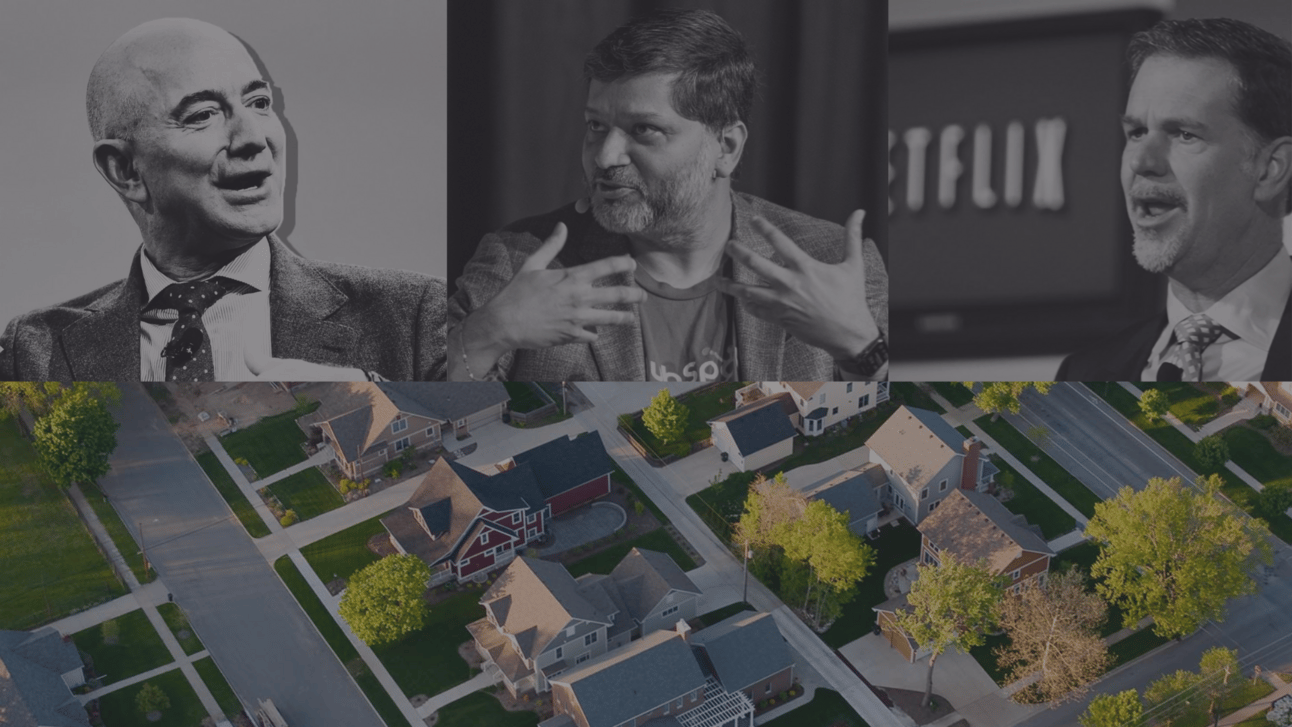What Amazon Can Teach HVAC Contractors About Company Culture
Some of the highest-performing companies in the world have weird cultures

❝
Amazon has low prices. Apple’s got beautiful products. Two different cultures. One’s not good and one’s not bad. What’s good for Amazon is not necessarily good for Apple.
Some of the highest-performing companies in the world have weird cultures. They do things differently. They’re controversial. They shake things up. But what they do… works.
Below are a few insights — applicable across industries, including HVAC — on company culture to ponder from three tech companies collectively worth over $1.7 trillion.
—
Amazon
In his latest book, venture capitalist Ben Horowitz makes an interesting observation about Amazon’s culture:
“Amazon has low prices. Apple’s got beautiful products. Two different cultures. One’s not good and one’s not bad. What’s good for Amazon is not necessarily good for Apple.
Amazon — [is] known for their frugality. They used to famously have you get a door as your desk on some two-by-fours.
Apple would never do that. But Amazon’s strategy is to be the low-cost leader. Apple’s strategy is to have the most beautiful, high-design products in the world. So Apple’s got $2,000 doorknobs, probably, on their campus and a $5 billion campus.”
Takeaway: Business strategy and company culture should be aligned.
HubSpot
In HubSpot’s 128-page culture code, they outline how they build their culture as a product for employees. Some takeaways:
- There is an active company database. Every employee can access company financials and notes from management meetings, and read past Q&As with executives.
- They believe simplicity is a competitive advantage. With simplicity comes speed — shorter feedback loops, quicker decisions.
- The companies’ processes are frequently assessed. Reports that aren’t used stop getting generated, rules that aren’t necessary get removed, unproductive meetings get canceled, and manual processes get automated.
- Debates are won with better insights, not job titles.
Takeaway: Consider culture as a product, continuously refined, with the employee being the customer.
Netflix
Netflix’s culture document has a section titled “Freedom and Responsibility.” While this is a little more applicable to office employees than field employees, here’s what they have to say:
“In some organizations, there is an unhealthy emphasis on process and not much freedom… As the informal, smooth-running organization starts to break down, pockets of chaos emerge. At this point, the general outcry is to “grow up” and add processes to reduce the chaos. As rules and procedures proliferate, more value is placed on following the rules.”
“We want to be a company of self-disciplined, accountable people who discover and fix issues without being told to do so. Some examples of our unusual amounts of employee freedom:
- We share documents internally broadly and systematically, so people can read and often comment on them—including memos on each title’s performance, our strategy decisions, and product feature tests. There are some leaks, but the value of highly informed employees is much greater.
- Our parental leave policy is: “Take care of your baby and yourself.” Parents generally follow local norms.
You might think this much freedom would lead to chaos. Instead, it has created an extremely successful business model over the last 25 years. Freedom can (and does) lead to chaos when we fail to couple it with a strong sense of responsibility. That is why freedom and responsibility go together…
Freedom also doesn’t mean your managers are not involved in your work. Getting input from leaders, peers or direct reports improves decision-making. It’s another example of how freedom can’t exist without responsibility.”
“Over the years, some employees have taken advantage of this freedom in various unfortunate ways. But those are the exceptions, and we try to avoid over-correcting. Just because a few people abuse their freedom doesn’t mean the rest of our employees aren’t worthy of great trust.”
Takeaway: Unusual amounts of freedom coupled with a commitment to responsibility can lead to extraordinary business outcomes.
Bonus: Bridgewater Associates
Bridgewater Associates is the world’s largest hedge fund — managing some $100 billion. They’re famous for their “idea meritocracy” where the best ideas win, no matter who they come from. Here’s one of Bridgewater’s founding principles:
“Create an environment in which everyone has the right to understand what makes sense and no one has the right to hold a critical opinion without speaking up.”
A write-up on their website elaborates on what they mean:
“We are aiming for interactions that get the best out of individuals and the team, with truth and a deep desire to excel at their core. We think great leadership in this context is lots of “people in the arena”, meaning people who will relentlessly pursue truth wherever it takes them and who are totally unwilling to be on the sidelines. This means they are: (1) speaking up and exposing their honest thoughts and willing to be wrong, (2) unafraid to be transparent about their stumbles, imperfections, and decision-making and, (3) seeking to find the best ideas and get the most out of others through deliberate inclusion.”
“There are two types of truth — what people honestly believe and what is objectively true. Getting to the latter requires people who speak the former because they care more about Bridgewater getting to the best answer than having produced that answer themselves. We want people to share their honest thoughts (versus sugar coat or keep things inside) not because they are sure they are right, but to find out if they are right…
In a meritocracy, greatness isn’t being the best debater, winning the most arguments, or personally having the right answer most often. It’s being honest about what you truly think while engaging with deep humility and the intent to learn, and in doing so increasing the probability of the team succeeding. Every member of the community has a responsibility to be honest and direct, and we expect a constant flow of feedback in all directions.”
Takeaway: Create a culture of truth-telling, where the winning idea can come from even the most junior person in the room.
—
Instead of ending this with a list of concrete takeaways to implement — because every contractor is different and deals with different issues in different parts of the country — we’ll leave you with a list of questions, related to what you just read, to ask yourself:
- How do we really want to position ourselves? The low-cost provider? The premium brand?
- Are the decisions we make based on that position?
- Do we openly communicate with employees when times get tough?
- Which meetings, reports, or processes are unnecessary and could be removed?
- Am I fairly valuing the opinions of our junior employees?
- Does our company tend to put band-aid fixes on issues, or do we dig deep to identify and solve the root causes?
- If I were more transparent about company financials, would employees be empowered to act more like owners?
- Do I micromanage my team? Why, if so?
- Do we make collective decisions? Or do I make the final decision regardless of what others say?
- What will become a problem soon if I keep pushing it off?
📬 Get our stories in your inbox
Keep reading
Contractors optimistic, plan to expand service areas: Report
A roundup of takeaways from a survey of over 300 HVAC contractors nationwide, including 2024 performance, expansion plans, and more
Q&A: The benefits of remote CSRs with AnswerForce
As a business owner, you’re practically a superhero. But unfortunately, you and your team can’t be awake 24/7


